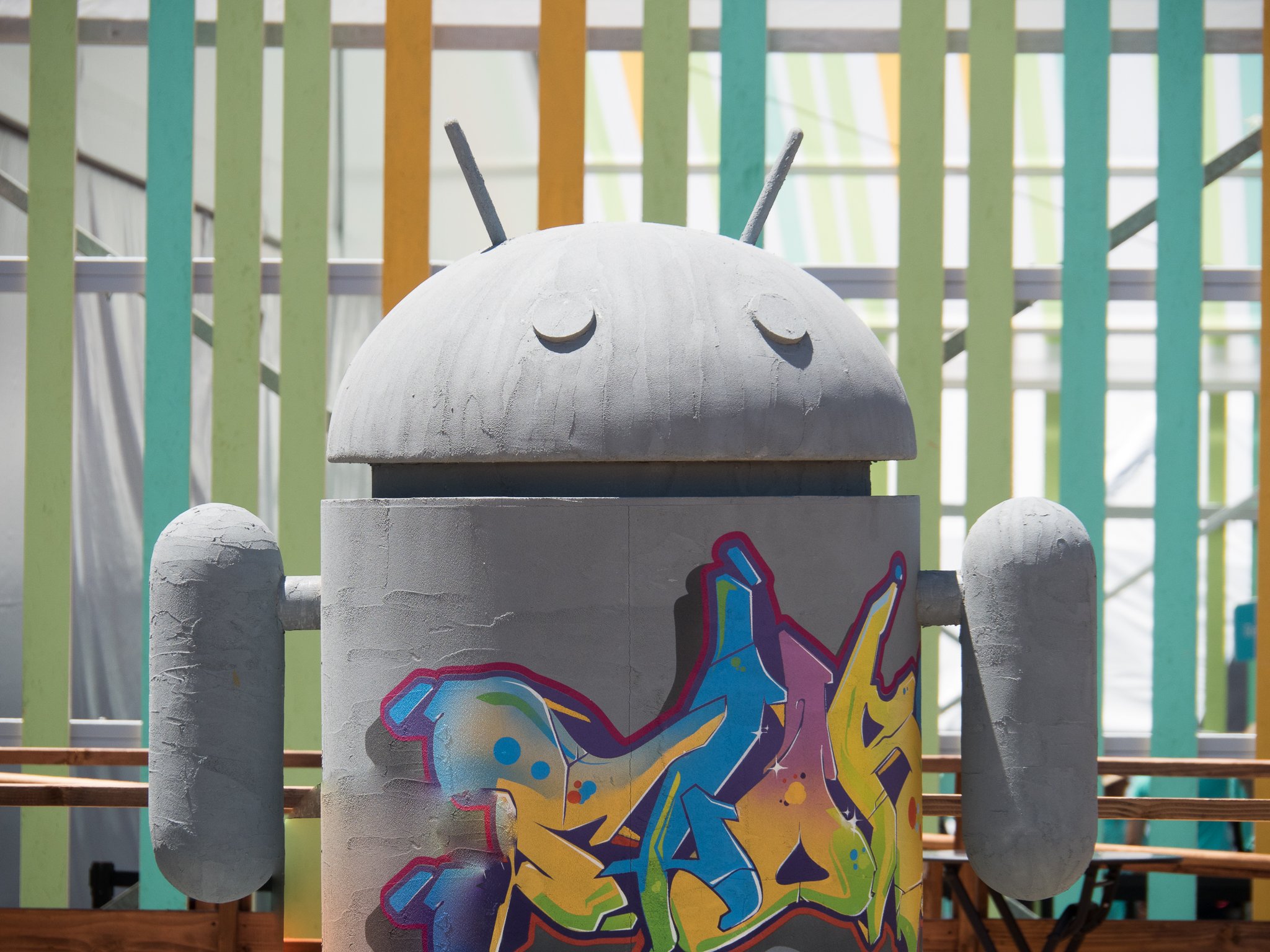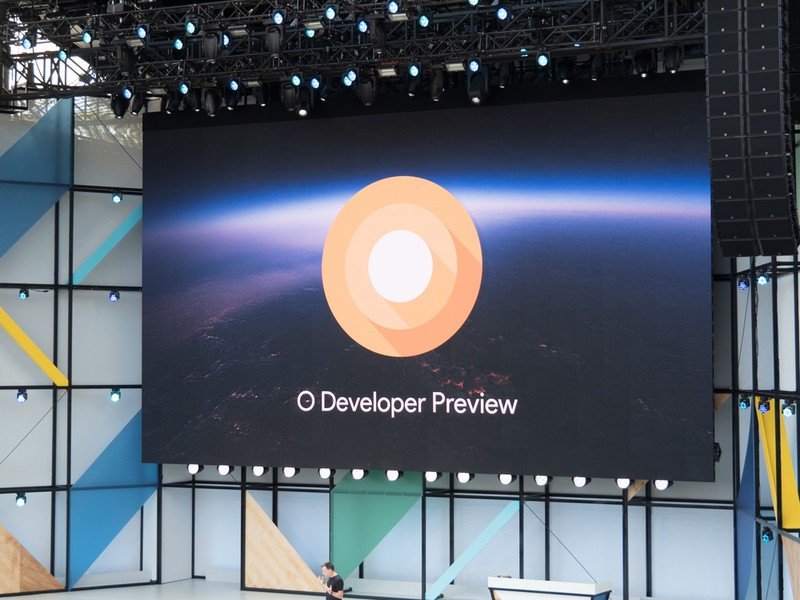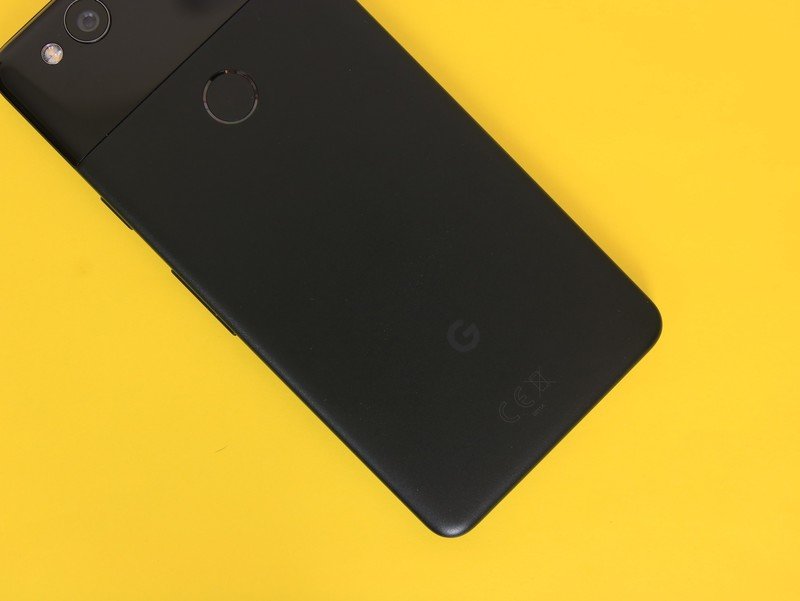When is Google going to release Android P?

If there's one thing you can always count on from Google's annual developer conference, Google I/O, it's a healthy dose of what's next for Android. Google takes a large amount of its conference to help developers prepare their apps for the new features coming to Android, and show off where it can for visibly new things. We know to expect lots of information about Google's next steps in software instead of hardware these days, because the software part is released in phases over several months as Developer Previews.
Considering Google is hyping its I/O conference a little earlier this year, and a few other bits of information we've scrounged up, it seems likely the initial Developer Preview for Android P will be here sooner than you think.
Chromebooks and Android P: Jerry has some thoughts!
Android P DP1

Unlike previous years where Google announced the next version of Android at I/O, last year the Developer Preview came long before the conference. By the time Google took to the stage in the middle of May 2017, developers had been playing with Android O DP1 for nearly two whole months. The final version of Android Oreo looked very different by the time it finally launched on the Pixel 2 in October, but the playground had been open for quite a while in the mean time.
With Google I/O starting on May 8 this year, it's likely we'll get the first Developer Preview for Android P a little earlier as well. Last year we saw Android O DP1 initial release a couple of weeks into March, which isn't that far away at all. If Google's schedule has been accelerated due to the earlier launch of the conference, we could be a few short weeks away from the first taste of the next version of Android.
Android P is already here for some

Like every company, Google internally tests lots of things before sending it out into the world. Part of that testing includes visiting websites like this one from those super secret versions of Android. Each year we see a slow buildup of traffic from that unreleased version of Android leading up to the initial announcement. It starts with a couple of pings over a week, and build up to several pings per day. By the time a Developer Preview is released, there's a nice graph in our analytics of mystery Android users in a steady upward trend.
This information doesn't guarantee much, after all anyone can tell their browser to report itself as anything if they know how, but it's a steady ramp up every year that gives us a fairly good idea of when Google is going to be doing its thing. We know Googlers are playing with early versions of Android P, and we know they've been using it more and more over the last two weeks. Based on the traffic we are already seeing for Android P, it's possible Google will announce the Android P Developer Preview earlier than last year. In fact, it's possible we'll hear more about Android P from Google before the end of February.
Be an expert in 5 minutes
Get the latest news from Android Central, your trusted companion in the world of Android
What does all of this mean?

Based on previous timelines from Google and some of the activity we're starting to see, it looks like Android P will be made available to developers earlier than last year. If it were to start at the beginning of March instead of closer to the end like last year, it would likely move the entire cycle ahead by a month. If Android P is ready to go a month earlier than usual, it could mean something more dramatic like the next Pixel phones coming up to a month earlier as well.
The whole timeline could have been moved up by a month.
Given what we're seeing with Samsung making the Galaxy S9 available earlier this year as well, it could also mean the next big phone from Samsung — such as the Galaxy Note 9 — launches with the next version of Android instead of waiting for an update like usual. Remember Google regularly provides its partners with access to new versions of Android much earlier than public developers, making it possible Google's ultimate goal for 2018 is to do away with the visual stigma associated with the latest version of Android having so few people using it by the end of the year.
A lot of this is speculation, based largely on prior experience with Google's behavior in the past. A new version of Android is always fun to play with, and when it comes to encouraging developer and hardware partner support earlier is always better. Until then, we can sit around and think some deep thoughts on what the P is going to stand for.

